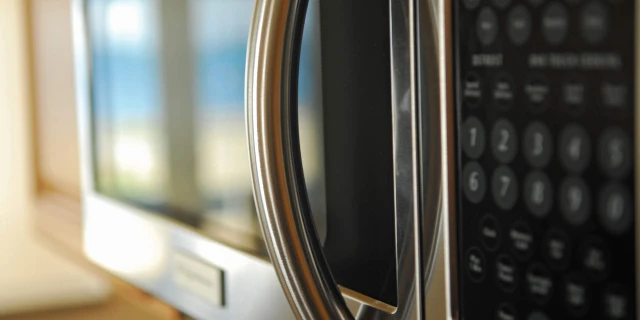Microwave FAQs

Years ago, microwaves revolutionized the cooking industry. In less than a minute, you could have a fully cooked meal, ready to be enjoyed with the family. While you probably use this gadget a few times a week, do you really know that much about it?
1. Why can’t metal go in a microwave?
We will always advise you not to place anything metallic into your microwave. The reason? Metal reflects microwaves generated by the magnetron back to itself, changing the charge of the metal and causing sparks from the metal to the wall of the microwave.
If you do put metal in the microwave, you not only risk destroying your unit, but also causing a fire. Don’t take chances and always play it safe and keep metal out of your microwave!
2. How does a microwave cook food without heat?
In a microwave, it’s the magnetron (a high voltage motor used for creating microwaves) that’s responsible for heating our food. As high voltage from a transformer feeds the magnetron, an internal filament (cathode) heats and emits energy.
Electrons fly out toward positive terminals (anode). However, a round magnet inside the magnetron bends electrons back to the filament. The action of electrons emitted from the filament and back again to the anode creates microwaves.
Microwaves get transmitted by an antenna internal to the magnetron and reflect off a device called a spinner located inside the microwave cavity. The spinner contacts the microwaves and as they reflect, they’re absorbed by water molecules in food. This action causes molecules to vibrate, creating friction and heat.
3. Are microwaves safe?
Yes! Don’t let the word “radiation” scare you — microwaves give off no more radiation than most other electronic devices. Today’s microwave levels are as little as 1/100th — the same amount of exposure you’d receive if you were to stand 20 inches in front of an oven.
4. How often should I clean my microwave?
We recommend a once-a-week cleaning to keep your microwave looking and working its best. But, if you notice obvious spills, take the time to wipe those up. Microwaves clean up quickly because you’re wiping and not scrubbing.
If the unit becomes soiled, we advise against spraying anything into or on, your microwave. Stray liquid could cause electrical problems inside the unit. Always dampen a soft rag with cleaner and wipe areas clean. Follow up with a dry cloth to polish the surface, including the keypad.
Give Mr. Appliance of Huntington a call today!


